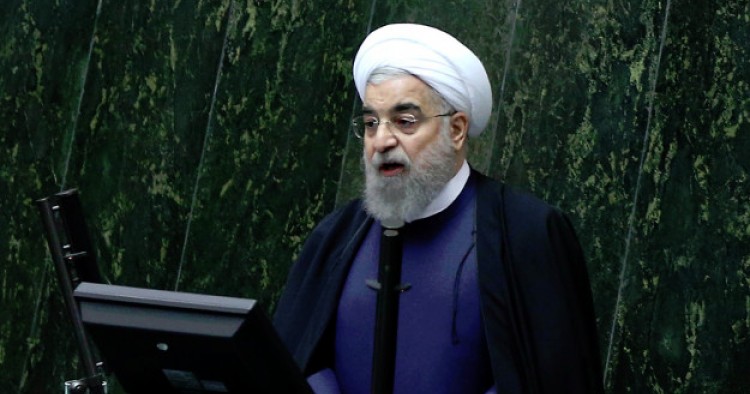On Monday, Iranian President Hassan Rouhani warned the United States and its regional allies that stability in the Middle East cannot be achieved without Tehran’s help. Speaking at the first press conference since his reelection victory, the Iranian president also dismissed the weekend summit in the Saudi capital of Riyadh, which was attended by President Donald Trump and Muslim leaders from over 50 nations. “In my view, the summit in Saudi Arabia was a ceremonial gathering and had no political and practical value. Saudi Arabia has organized many similar exhibitions in the past." But he emphasized that Tehran would not yet make a judgement about the Trump administration's policy vis-à-vis Iran and the broader region and would wait until the new U.S. administration finds “stability and continuity” in its foreign policies. Describing the U.S. invasions of Afghanistan and Iraq as mistakes, Rouhani said the United States “does not know our region” and has failed in deterring and pressuring Iran.
“The Americans used different methods against Iran and have always failed and faced defeat,” he said, adding that the only American success has been the 2015 Iran nuclear agreement under the Obama administration – which he described as a win-win situation for Tehran and Washington as well as the entire world. “If America chooses another path, it will undoubtedly fail again,” he cautioned.
Comment: Rouhani’s remarks were a reaction to anti-Iran statements by American and Saudi leaders at the Riyadh summit. “From Lebanon to Iraq to Yemen, Iran funds, arms, and trains terrorists, militias, and other extremist groups that spread destruction and chaos across the region. For decades, Iran has fueled the fires of sectarian conflict and terror,” Trump told a large gathering of Muslim leaders from across the world. “Until the Iranian regime is willing to be a partner for peace, all nations of conscience must work together to isolate Iran, deny it funding for terrorism, and pray for the day when the Iranian people have the just and righteous government they deserve,” the American president added.
There has been a growing concern in Tehran that the Trump administration is reinvigorating Washington’s relations with its traditional allies in the Middle East to push back against Iran’s expanding influence across the Middle East. Iranian leaders and media outlets have warned that Washington is working with Iran’s Arab rival states and Israel to establish an “Arab NATO” to contain and isolate Iran. The increasing presence and activities of the U.S. military in Syria and Iraq have only added to Tehran’s worries. Last week, the U.S. military for the first time targeted Iran-backed militia forces in Syria.
On the campaign trail earlier this month, Rouhani pledged that he would work with the United States and other Western powers to remove the remaining sanctions against Iran in order to encourage foreign investment and stimulate economic growth. But that campaign promise faces two key challenges: First, while the Trump administration does not appear to be walking away from the nuclear accord, it has made it clear that it will increase economic and diplomatic pressure on Tehran in other areas - particularly regarding Iran's missile program and support for regional terrorist and militant groups. The second, and the most significant one, is that it is the powerful Revolutionary Guards, not the president in Iran, that devises and implements the country’s policies and actions in Syria, Iraq, Yemen, Afghanistan and beyond under the supervision of Supreme Leader Ali Khamenei. And both Khamenei and the Guards have ruled out any rapprochement with Washington.
In addition, relations between Tehran and Riyadh are at their nadir in decades. Iran and Saudi Arabia have been on the opposing sides of the regional conflicts for many years. But Iran’s increasing support for the Houthi rebels in Yemen has particularly troubled Saudi leaders. Riyadh severed diplomatic ties with Tehran last year after revolutionary mobs ransacked Saudi diplomatic missions in Iran to protest the execution of a Shiite leader in Saudi Arabia.
The Middle East Institute (MEI) is an independent, non-partisan, non-for-profit, educational organization. It does not engage in advocacy and its scholars’ opinions are their own. MEI welcomes financial donations, but retains sole editorial control over its work and its publications reflect only the authors’ views. For a listing of MEI donors, please click here.












